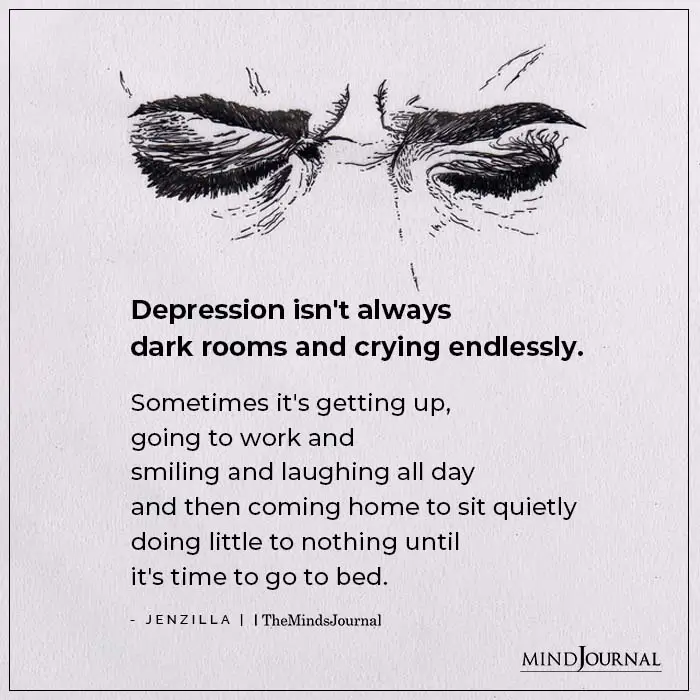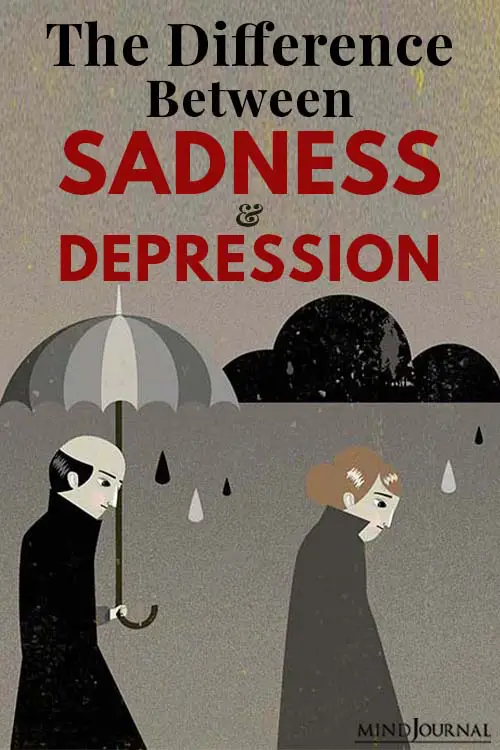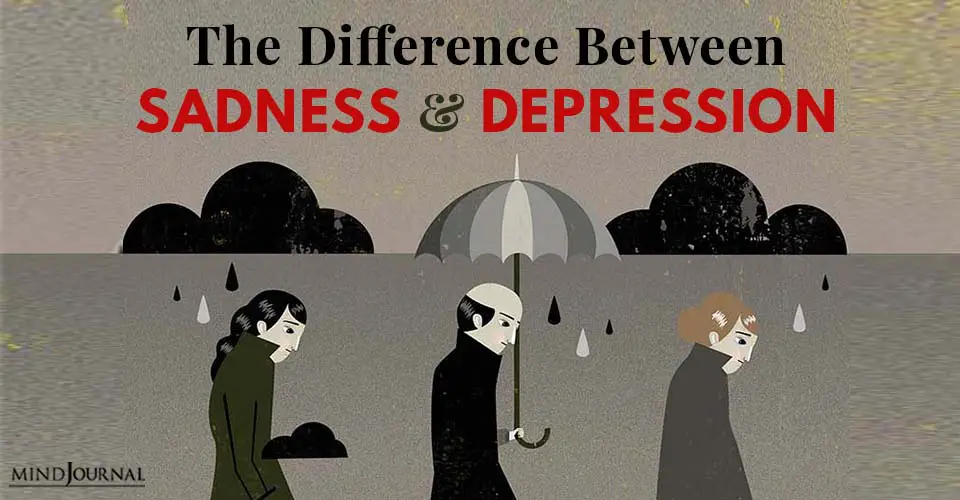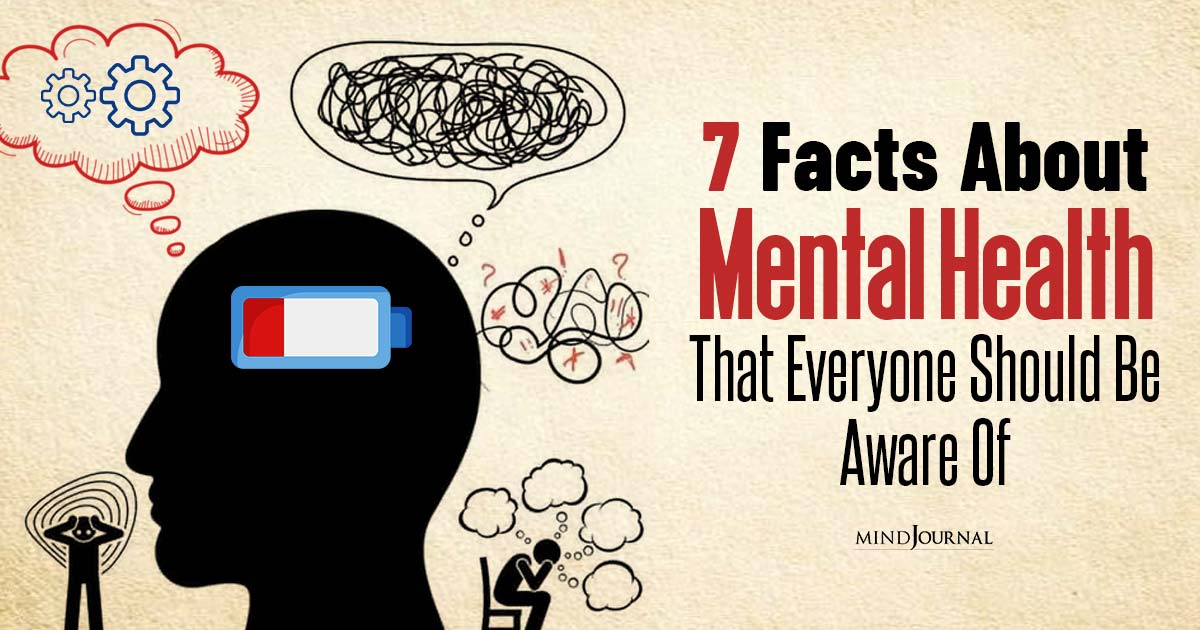Getting depression and sadness mixed up is one of the worst things you can do while talking about the former. Understanding the difference between the two is absolutely crucial.
We often hear the term “depression” thrown around lightly in conversation. We may come home from a stressful day at work and tell our family at dinner that we are depressed. We may have received some bad news about a loved one and tell ourselves that we are depressed. And sure, we may be depressed, but often we are confusing sadness with depression.
Sadness is a symptom of depression, and because we associate these together, we often struggle to differentiate between these two common psychological states.
This creates a significant problem.
The inability to differentiate between sadness and depression can lead us to neglect a severe psychological condition (depression) and overreact to a normal emotional state (sadness). If we overuse the term depression when we are describing our emotional state of sadness, we are simplifying a major mental health disorder.
Depression is a serious mental health disorder that has vast implications on our personal lives, professional lives, and society as a whole. As of 2017, 300 million people around the world have depression.
What is sadness?
Sadness is a normal emotion that is triggered by a specific adverse event or bad experience. In other words, we become sad about something specific. This emotional state dissipates after some time or after something good, replaces the hurtful event that triggered the initial sadness. Sadness is temporary. We may feel sad for a moment, an hour, or even a couple of days.
Every individual will experience sadness, probably more than once, in his/her lifetime. You may become sad because you ended a romantic relationship, or you did not do well on an exam, or you spent the night fighting with a friend. We can often find some relief from our sadness by crying, venting, or talking about our situation.
Related: 5 Ways To Eliminate Sadness From Your Life
What is depression?
Depression is a mental health disorder, an abnormal mental and emotional state, which affects how we think and feel about everything. Depression leaks into every aspect of our life, and when we are depressed, we feel numb or sad about everything. Everything in our life is less enjoyable, less interesting, and less important. The things we once loved and were passionate about no longer bring us meaning or purpose.
Depression, unlike sadness, does not have to have a specific underlying trigger. Individuals are often depressed “for no specific reason.” On the surface, they may seem like they have their life together. A great job, a loving family, a beautiful home, but in reality, they are hiding their emotions behind a mask.
They may be barely able to get out of bed in the morning. They may be struggling with their relationships. They may be lonely. They may no longer find satisfaction or purpose in their job. Depression makes us less patient and quick to anger. Unfortunately, many individuals assume that one can snap out of their depression. They misinterpret that depression is not a choice or a state of mind. Depression is a mental illness.

Signs and symptoms of depression
To be formally diagnosed with major depressive disorder (MDD) an individual must experience a depressed mood or loss of interest or pleasure in almost all activities for at least two weeks as well as at least five other symptoms including the following:
- Change in sleep: Either difficulty falling asleep or sleeping too much.
- A decrease in energy or feelings of fatigue daily.
- Change in appetite or weight: Gaining weight, losing weight, overeating, or eating much less.
- Feelings of guilt or worthlessness.
- Difficulty concentrating.
- Slow physical movements or unintentional purposeless movements that are noticeable by others.
- Recurrent thoughts of suicide.
Sadness (depressed mood) is just one symptom of depression.
Related: 10 Habits That Cause Low Self Esteem And Depression
Treating sadness versus treating depression
Sadness can be overcome within time. You can express your emotions, “cry it out”, go out with friends, or spend time outdoors. Expressing sadness over the loss of a loved one may take some time, but you can still find happiness in other aspects of your life. Engage yourself more with these happy aspects.
Depression is best treated with a combination of medications and psychotherapy. The most common medications used to treat depression are selective serotonin reuptake inhibitors (SSRIs). All medications, including SSRIs, come with side effects, and therefore it is essential to have a conversation with your healthcare professional before starting this treatment.
Cognitive Behavioral Therapy is the mainstay psychotherapy approach in treating depression. Treatment for depression does not happen overnight; this is a process and can take some time, and different treatment approaches. Depression is a prevalent mental illness, and many treatments benefit most individuals.
Written By Kristen Fuller
Originally Appeared in Psychology Today
Now that you know that sadness and depression are not necessarily the same, you will be able to understand what you are actually going through. Understanding the difference between these two is very important because this will help you go for the right recovery plan, and get better as soon as possible.









Leave a Reply
You must be logged in to post a comment.